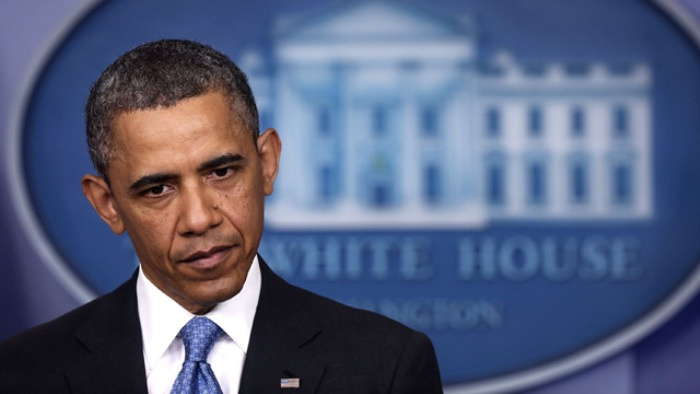Washington Has No Clear Agenda in Syria

How is the world going to open Syria's Gordian knot? Since opposition against Bashar Assad turned into an armed conflict, the country has turned into a battleground of regional and global actors, who are neither decisive and powerful enough to end the war nor that prudent to step out of the battle. While Barack Obama has shown indecisive against the situation, his Russian counterpart Vladimir Putin has significnatly changed the landscape of the conflict with decision to practice direct military presence in order to support his ally Bashar Assad. Putin's decision has raised among actors who had bet on the armed opposition. Turkey, one of them, showed its dissatisfaction last week by downing a Russian bomber allegedly violating its airspace. Iranian Diplomacy has interviewed Majid Rafizadeh, Iranian-American political scientist on the prospect of the war in Syria:
IRD: What is your evaluation of current US strategy against ISIS? Do you think that Obama’s avoidance of deploying more ground forces has aggravated the Syria crisis?
MR: When it comes to US policy in fighting the Islamic State, Washington does not have any clear, articulate, and comprehensive agenda. I characterize the US strategy as “wait and see” foreign policy. Using boots on the ground will not resolve the Syrian conflict. Instead, it will expand the regional and international proxy war in Syria. Syria has turned into one of the largest regional and international proxy battlegrounds of our generation. There is no military solution. There exists a political solution.
IRD: How should West react after the recent Paris attacks? Should the US and its allies intensify their air attacks and send more troops to Syria and Iraq in order to defeat ISIS?
MR: Western powers need to restructure the foundations of their foreign policy towards Middle Eastern states. Supporting authoritarian states leads to unintended consequences and rise of extremist groups. This has led to an ideological war, not a military one.
In addition, Western nations need to assimilate their religious minorities in the society more effectively. Secular states should not interfere in religious affairs. Also, this means economic disparity, discrimination and racism should be addressed. (Most of the Paris attackers were home-grown French citizens)
Sending more troops will ratchet up anti-American and anti-Western sentiments. It will also provide the ripe environment for the Islamic State to attract more fighters in order to fight with foreign troops. It will further radicalize and militarize the conflicts.
IRD: What do you think about Russia’s intervention in Syria? Do you think that Putin’s objectives are completely at odds with the West’s interests? Can they make a deal at some point?
MR: Russia, like any other governments, is attempting to preserve its national, geopolitical, and strategic interests in the region. They are also trying to send a message to the West and particularly the United States, that Western countries can not intervene in any nation they desire and change governments. In addition, Putin also desires to reassert his global leadership after tensions between the West and Russia ratcheted up and economic sanctions were imposed on Moscow, primarily due to Moscow’s annexation of Crimea. Moscow’s role in Syria extends its influence in the region and gives it a leverage to push the West lift sanctions.
I think the gaps between the Russian and Western position is too deep to bridge. But Russia might be ready to accept Syria without Assad.
IRD: what is your idea about recent coalition between Iran and Russia in Syria? Does Russia share the same objectives as Iran in Syria?
This highlights the complexity of the Syrian civil war. The Syrian conflict anchors in four concentric circles of tensions: domestic, regional, international tensions, and role of global non-state actors such as the Islamic State. The coalition is both strategic and tactical. It aims at counterbalancing the geopolitical influence of Washington consensus and Western powers.
What do you think about current rivalries between regional powers in the Middle East? Iran, Saudi-Arabia and Turkey have defined their interest differently. Can these divergent attitudes lead to a successful peace process?
If regional states focus on their convergence of interests (such as fighting Sunni radical groups) they can start the peace process. But again, the geopolitical and strategic gaps between Saudi Arabia’s coalition, on the one hand, and Iran, on the other hand, are too deep to bridge.
IRD: What do you think about Iran’s role in the region after JCPOA? Do you think it is increased or controlled?
I think Iran’s global legitimacy has been enhanced after the nuclear deal was reached. I do not think the Islamic Republic is in comfortable position when it comes to its current role in Iraq and Syria. I believe Iranian leaders prefer to employ soft power rather than hard power.
Dr. Majid Rafizadeh, an Iranian-American political scientist and Harvard University scholar, is president of the International American Council and he serves on the board of Harvard International Review of Harvard International Relations Council at Harvard University. Rafizadeh is a regular political analyst and contributor for national and international outlets including CNN, BBC TV and radio, ABC, Fox News, MSNBC, CNBC, RT, CCTV and Aljazeera English.

